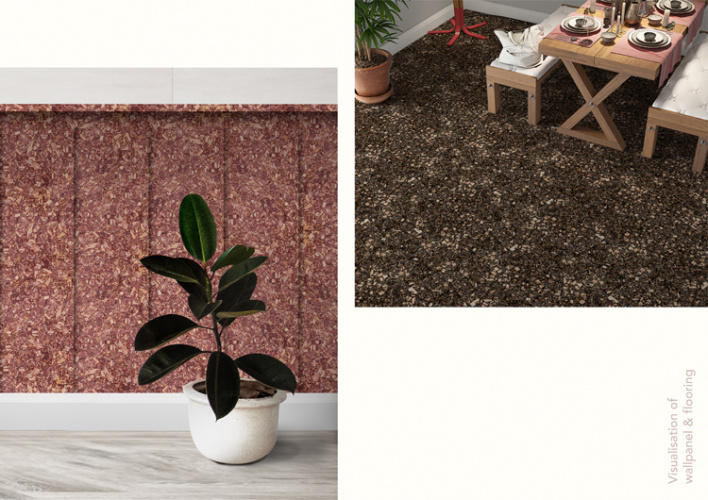Five projects that represent a “new generation of socially conscious designers”
The Royal Society of Arts has unveiled the winners of its 96th annual Student Design Awards – here are the projects that caught our eye.
The Student Design Awards from the Royal Society of Arts (RSA) is the longest running competition of its kind in the world. Past winners of the accolade include former Apple chief design officer Jony Ive, former Nike head of innovation Richard Clarke and co-founder of IDEO and designer of the first laptop Bill Moggridge.
This year marks the 96th edition of the awards, and according to the RSA, the winners in 2020 represent a “new generation of socially conscious designers”. There were nine briefs in total this time around, which asked creative young people to embrace and tackle technologies and challenges including AI, community, circular fashion and refugee displacement.
In total, 18 students were recognised – these are the projects that stood out in particular to Design Week.
Nip it in the Boob – Jessica Williams, Northumbria University

With 40 per cent of breast cancers being self-detected, facilitating home breast examinations is an essential part of health care. Jessica Williams’ Nip it in the Boob is an AI-driven, interative health monitoring service that allows women to “confidently record monthly assessments, access tailored recommendations and enable early detection of breast cancer”. The product is focused in part at women under 50 who don’t have access to regular mammogram scans (despite accounting for one in five of all breast cancer diagnoses).
Nip it in the Boob works by initially giving users access to a series of hands-on examples of what different breasts feel like, if for example they have no tumours, cysts or lumps. They can then input this into a smartphone app, which uses data offered by users to recommend when the optimum time for a self-examination is. The app uses AI to assess the information given by the user, and calculates if and when a GP appointment is required.
Launder – Rachel Davies, Falmouth University

The exponential rise of the fast fashion industry goes hand in hand with a widespread disappearance of knowledge in clothing care techniques. With less of an idea how to make our clothes last longer, consumption goes up. In response to this problem Rachel Davies has developed Launder, a “repositioning of the laundrette as a multi-service clothes care destination” and “central hub in a community”.
Launder targets young adults, and encourages them to rethink their wardrobe within the framework of preservation. With the aim to replicate the gratification buyers feel when they get new clothes, staff at laundrettes would be supported to help consumers renew, mend and take care of their staple pieces. Clever use of social media, art direction and evening classes would, Davies hopes, help reframe our attitudes to clothing, from disposable commodity to long-term investments.
INCUBE – Aditya Kujal Walia, Northumbria University

In response to the RSA’s brief “Dignitiy in Displacement”, Aditya Kujal Walia has created INCUBE, a flat-pack, low-cost disposable incubator for new-borns in Internally Displaced Person (IDP) camps in Nigeria. As Walia explains, such camps are currently home to some 500,000 babies and premature- and hypothermia-related incidents claim the lives of many since temperatures can drop below 12 degrees at night. With medical services stretched, staff often cannot reach sick babies in time.
INCUBE then is a cardboard cot, designed to be flat-packed and assembled on site. Key instructions are included to ensure the correct assembly, and provide guidance on the heating of the pouch within. The heated pouch itself has been designed with reference to what facilities are available in IDP camps, a pot filled with water over a fire, and locally sourced materials, beeswax. The design, he says, provides sufficient warmth to keep babies alive until medical assistant is available, for around four to six hours.
MakeCents – Alexandra McDermott, Dervilla McNamara and Amalia White, NUI Maynooth

Even in 2020, the workplace can seem an unattractive place for many women, not least because of high childcare costs, rigid employment practices and shouldering the weight of most primary care responsibilities. In a bid to address this issue, MakeCents is a job-sharing service and community for mothers, which intends to make it easier for them to stay in the workplace.
The service design proposal, developed by McDermott, McNamara and White, identifies a number of nuances to the wider problem of the maternal wage gap, such as jobs being part of identities, the pressure of arranging childcare and unspoken barriers within the workplace. MakeCents’ solution then is a platform that acts as part job-board and part-community, allowing mothers to engage in ways they need, such as finding business partners, pooling and sharing skillsets and undertaking relevant courses.
TRĒOW – Sandra Reith, University of Leeds

Despite ample sources across the country, the UK remains one of the top importers of wood and wood products in the world – with the right management, however, much of this reliance on foreign wood could be alleviated with domestically grown alternatives. The wider design industry has, in recent years, embraced the trend for alternative, sustainable materials, and TRĒOW from Sandra Reith follows in these footsteps.
TRĒOW is a high-quality material made from small diameter logs. Such logs are usually produced during the “thinning” process, are perceived as low-quality and are usually burned as wood fuel. With the raw mass of TRĒOW being so malleable, the material can be used for a multitude of different shapes in the construction industry, while its statement appearance makes it an interesting choice for interiors.
To find out more about these RSA Student Design Awards winners, and to browse the other successful projects, head to the RSA website.
-
Post a comment





